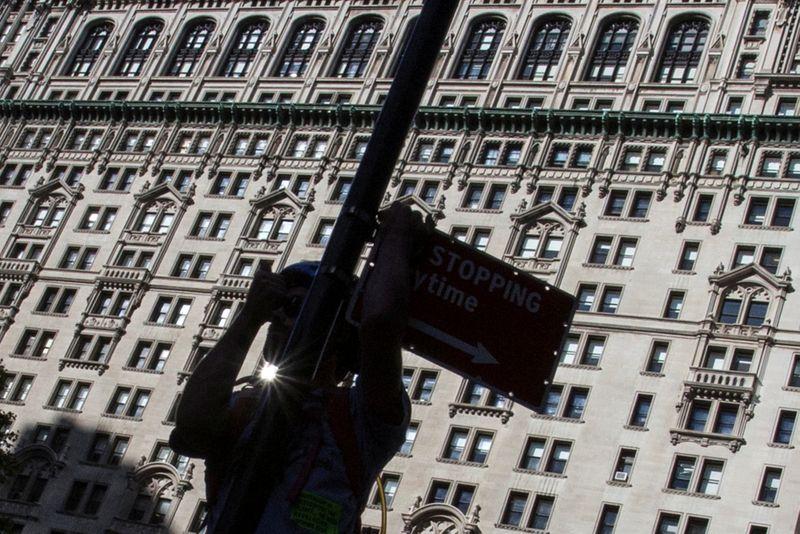Investing.com -- China loosens monetary policy as the country's financial sector braces for an official debt restructuring announcement from Evergrande, the country's largest and most indebted real estate developer. Crypto crashes - led by (Bitcoin) as the dollar gets a safe haven bid. Stocks are set to open the new week mixed after selling off on Friday in response to the labor market report. Kohls is under pressure to sell itself. The Omicron variant of Covid-19 continues to spread but may be less dangerous than Delta, and oil prices firm as Saudi Arabia hikes its official selling prices for January. Here's what you need to know in financial markets on Monday, 6th December.
1. China eases with Evergrande on the brink of default
China’s central bank loosened monetary policy, aiming to head off financial instability caused by the likely default of embattled real estate developer China Evergrande later Monday.
Evergrande warned on Friday that it’s looking at maybe restructuring its dollar bonds, saying there was “no guarantee” that it would be able to continue meeting its financial obligations. The 30-day grace period for two dollar bonds on which Evergrande missed payment last month expires Monday.
The People’s Bank of China will cut the amount that banks are required to hold on reserve by 0.5% to a weighted average of around 8.4% of eligible liabilities. That’s a broad-based easing of monetary conditions that will free up around 1.2 trillion yuan ($188 billion) in liquidity for the banking system.
Chinese stocks rallied on the rumor and sold off on the fact of the move. The Shanghai Shenzhen CSI 300 fell 0.2% but the Hong Kong-based Hang Seng index fell 1.7% to its lowest in 15 months. The yuan edged lower against the dollar but is still trading close to a three-year high.
2. Crypto crashes
Crypto fell out of bed with a thud over the weekend, in what appeared to be a reaction to the Federal Reserve’s heavy hints last week that it will speed up the pace of tightening monetary policy next year.
Bitcoin fell as much as 20% in the overnight session between Friday and Saturday, but had recovered by 6:30 AM ET (1130 GMT) to be at $48,116, down just under 9% from where it was in the minutes leading up to the crash. At its low point on Saturday, Bitcoin as down nearly 40% from its peak a month ago.
Other coins have inevitably been dragged down too, with Ethereum being the only clear outperformer among major names. It’s down only 8.6% on the week, compared to declines of 17% for Bitcoin, 13% for Solana and 19% for Cardano. Stablecoins such as Tether and USD Coin have held up even better, reflecting a still-high degree of confidence in their dollar backing, despite Tether’s repeated failures to address regulatory concerns about its reserves.
3. Stocks set to open mixed; Kohls in play
U.S. stock markets are set to open mixed later, with interest-rate sensitive Nasdaq 100 futures underperforming. Fears about Fed tightening continue to bubble after a labor market report that was stronger than it looked at first glance.
By 6:15 AM ET, Dow Jones futures were up 149 points, or 0.4%, while S&P 500 futures were up 0.1% and Nasdaq 100 futures were down 0.4%. All three indices had closed the week with losses on Friday. The Dow has now fallen for four weeks in a row, while the S&P and Nasdaq Composite have fallen in three of the last four weeks.
Stocks likely to be in focus later include Kohls, where activist investor Engine called for either a sale of the business or a spin-off of its e-commerce operations. Also in focus will be Nvidia (NASDAQ:NVDA) stock, as regulatory opposition to its bid for chip designer ARM reaches what looks like critical levels. Softbank (OTC:SFTBY) shares fell over 8% in Tokyo to a 16-month low as the prospect of a juicy cash-out receded.
4. Fauci 'encouraged' by Omicron news so far
Early news about the spread of the Omicron variant of Covid-19 is “a bit encouraging”, according to President Joe Biden’s chief medical advisor Anthony Fauci.
Fauci told CNN in a weekend interview that “it doesn’t look like there’s a great degree of severity to it,” adding that existing vaccines appear to offer a still-high degree of protection against it.
The new strain of Covid has now appeared in 40 countries and 15 states of the U.S., but the latest data from South Africa shows hospital admissions still well below previous peaks despite rising rapidly from low levels. Various reports from the country suggest that the new strain is taking more of a toll on younger patients, with over two-thirds of admissions in the region around the capital Pretoria being of patients under 40.
5. Oil rises after last week's clean-out; Saudi raises official selling prices
Oil prices rose after Saudi Arabia raised its official selling prices to customers in Asia and the U.S. for January.
The move was interpreted as a sign of confidence in underlying demand for crude despite the lingering uncertainty over the impact of the lastest wave of Covid-19 infections and a real-estate-induced slowdown in China.
The market shrugged off numbers out of Europe’s largest economy earlier in the day that showed the second sharp drop in three months in German factory orders, typically a reliable if volatile leading indicator for the region.
By 6:30 AM ET, U.S. crude futures were up 2.8% at $68.14 a barrel, while Brent was up 2.6% at $71.71 a barrel. The CFTC’s positioning data on Friday had also showed net speculative long positions at their lowest all year.





